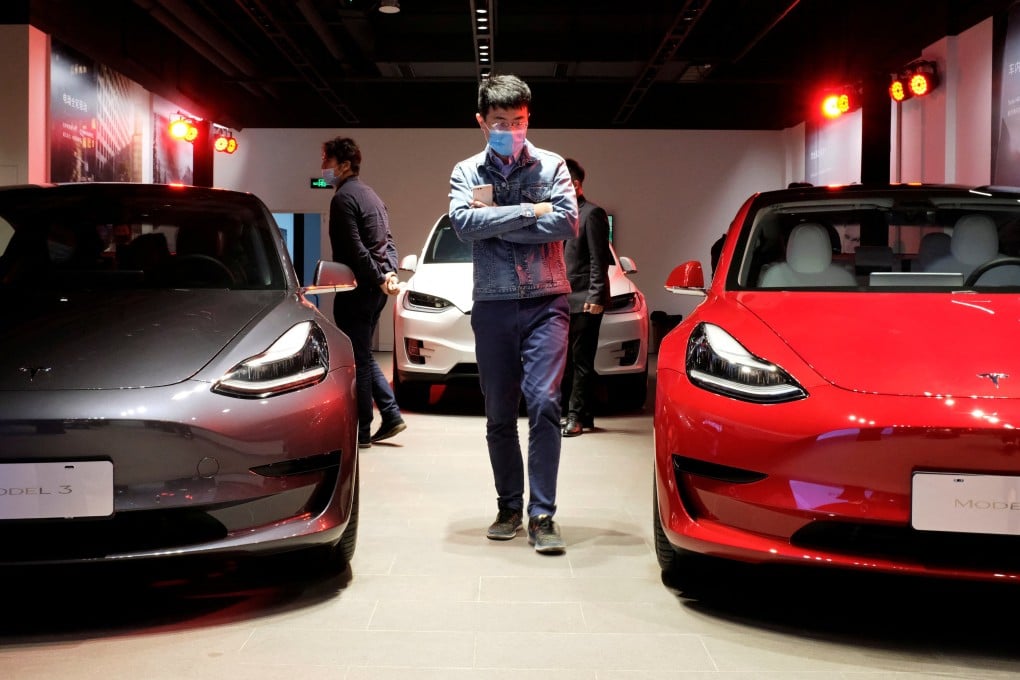Advertisement
Tesla to recall more than 127,000 Model 3s, offer free over-the-air software update, SAMR says
- The problem lies in the semiconductor component and may lead to potential collisions and pose a safety hazard in some extreme scenarios, regulator says
- Multiple recalls could give US carmakers’ Chinese competitors a leg-up, analyst says
Reading Time:2 minutes
Why you can trust SCMP

Tesla will undertake yet another recall in China to fix a semiconductor component, the country’s market regulator said on Thursday.
The Palo Alto, California-based electric vehicle (EV) maker will recall 127,785 Model 3s. The recall includes cars that have been manufactured in China and those imported between January 2019 and January this year.
“The problem lies in the semiconductor component, which … may lead to potential collisions and pose a safety hazard in some extreme scenarios,” the State Administration for Market Regulation (SAMR) said in a statement. Tesla will upgrade a software for the recalled vehicles free of charge through over-the-air vehicle remote upgrade technology, SAMR said. Those who cannot access the upgrade remotely will have to contact sales centres.
Advertisement
Tesla is the runaway leader in China and sold 321,000 cars in the country last year, up 117 per cent from a year earlier. NIO, Xpeng and Li Auto, the three Chinese home-grown EV players viewed as mounting a challenge to the US giant, delivered a combined 280,075 units in the same period.
Moreover, Thursday’s recall is not Tesla’s first in China. On February 18 this year, it announced an immediate recall of 26,047 made-in-China Model 3s and Model Ys manufactured between December 28, 2020, and January 15, 2022, because of a software issue. In December last year, the EV maker recalled 199,741 cars, including imported Model Ss and Model 3s, as well as locally produced Model 3s, because of safety hazards in bonnets and boots.
Advertisement
Advertisement
Select Voice
Select Speed
1.00x